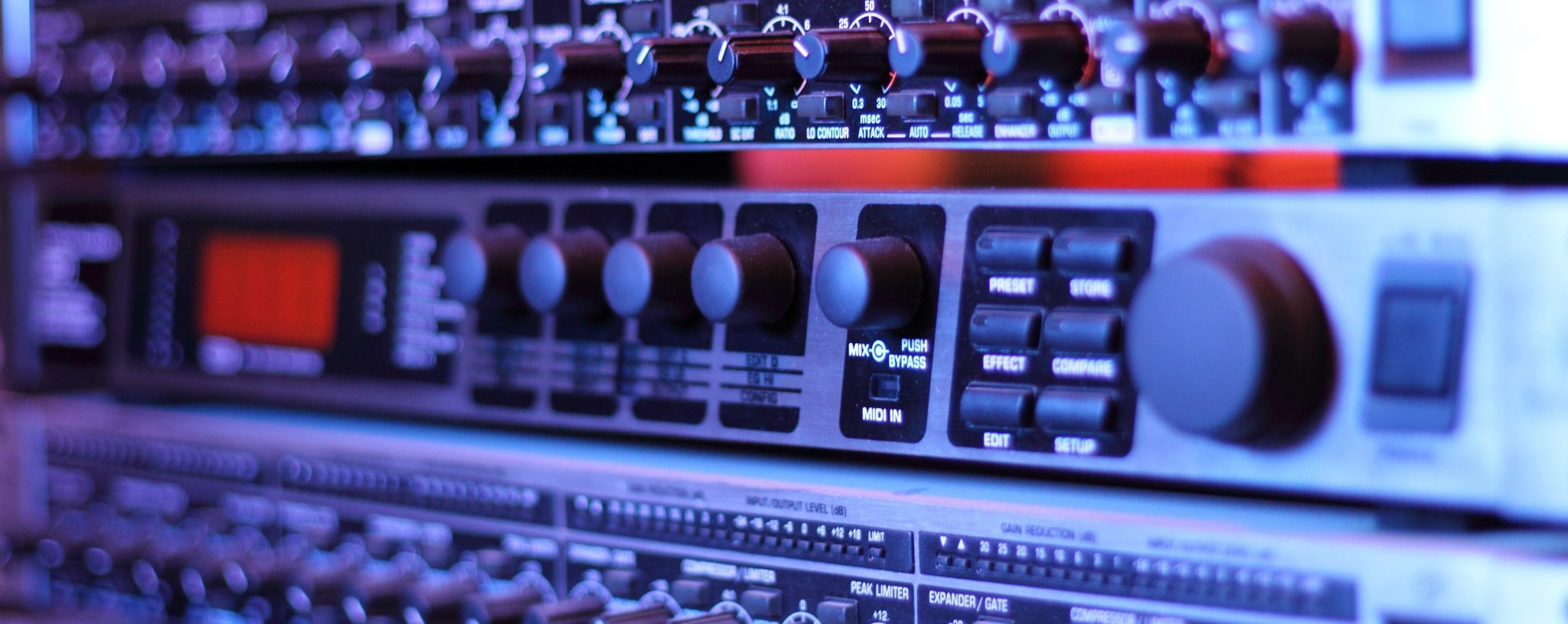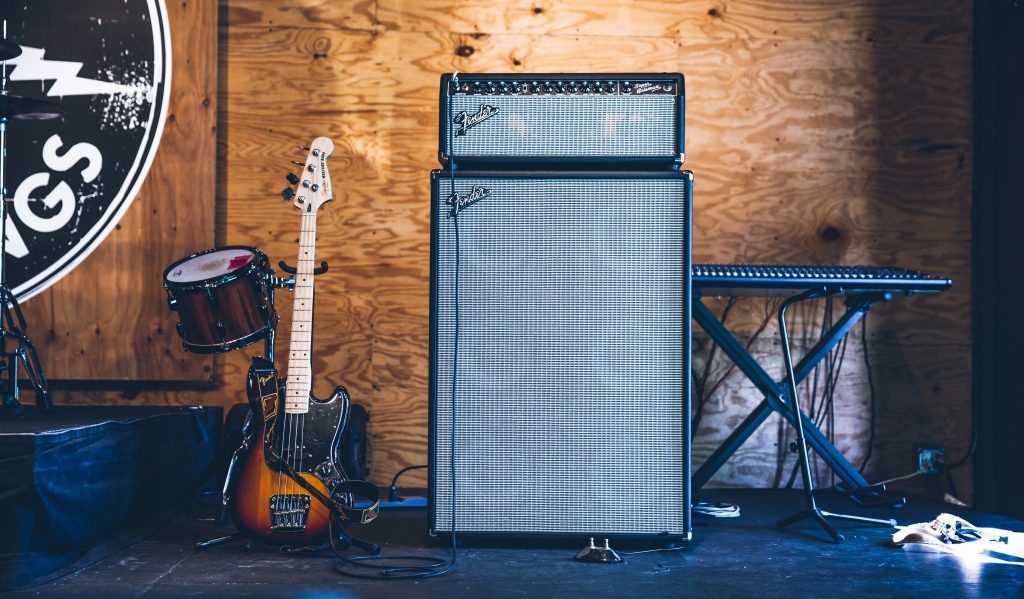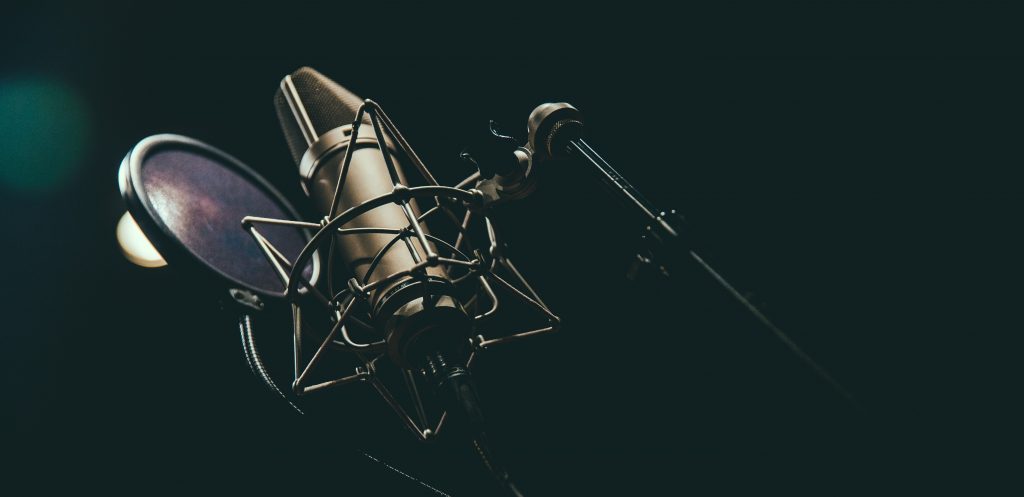
10 Quick Studio Tips
- Production
- 7th April 2018
- Lenny Bedford
You've written an awesome song and you're ready to record it! Woo hoo! Here's 10 quick studio tips to help you get the most out of your studio time!
1) Know What You Want.
Before you even consider booking the studio, you need to know what you want to get out of your studio time. You need to really consider what you want this recording to sound like. Do you want it heavy? Do you want it floaty? Bright? Do you want it to sound like another band, or a cross between a few. When you can describe exactly what you want your song(s) to sound like, then you are ready to choose your studio.
2) Choose The Right Studio.
Some studios specialise in certain genres. Where a studio is and the environment around it can also affect the whole recording. When you are in the studio, you need to be in the right mindset, or it will show on the recordings. Folk artists may want to record in the countryside, where the natural surroundings can help them get into the mood, or metal bands may want to record in an old factory to get a dirty, industrial feel.
It sounds like a cliché, but atmosphere and ‘vibes’ are very important. What’s more important than environment however, is the studio’s track record. Do they have a portfolio that sounds great? Have they worked with similar sounding artists? These are all things to consider.
3) Bring Reference Tracks.
If you have chosen a few artists that you want to sound like, make sure to let your producer / engineer know. They then can cater the studio experience to help you achieve the sound you want. Different recording techniques and equipment can help you nail the sound down to a T, and these are all things the studio can help with. The studio may even have some house guitars or amps that might suit the sound you want even more than the equipment you have. If you’re wanting a bright indie sound, the studio may lend you a stratocaster or telecaster. If you want your vocals to sound like Barry White, the studio may have a vocal FX box. You’ll never know if you don’t ask.

4) Learn The Basics Of Mixing,
If you can learn a little about the basics of mixing before going in to the studio, this can help tremendously with translating your ideas into the recording. Sometimes, engineers and producers can be a little stuck in their ways, or have a specific mixing set up that they use for artists of a similar sound. But if you map out exactly what you want, then they will know what to do. They will likely suggest some additions or changes, so with your ideas and the (hopefully) experienced ears of the studio staff, you’ll be able to get what you want. For more info about the basic of mixing, click here!
5) Experiment With Mic Techniques.
There are a million and one different microphone techniques that you can experiment with to get the sounds you want. Consider placing a microphone against reflective surfaces for some natural reverb or putting two microphones into one amp. This is a subject that will require a bit of research before going in to the studio, but if you understand the basics of how certain microphones work, this will all help solidify the sound.
You would be amazed at how different microphones and placements can affect the sound. There are microphones suited to low frequencies, such as kick drums and bass guitar, and some more designed to pick up the high end of guitars and vocals.
6) Know Your Parts.
This is another one of those points that should go without saying. But still, people head into the studio not fully knowing their parts and treat studio time like rehearsal. This is a waste of time. And therefore, a waste of money. It’s fine to write parts in the studio, but just in case no new riffs come to mind on the day, you have to know what you are playing, when you are playing it, how it fits into the song and why.
It is also worth knowing where your particular instrument fits into the song. If you have two guitarists, and one of you is taking the lead in a song’s melodies, accept that. It is a common occurrence in the studio for each member to try and outdo the others. If you have written good, varied material, then all of you will have the opportunity to shine on different tracks, so sit back, and play your part!

7) Add Extra Parts.
The recording studio is a great opportunity to add parts into the song that cannot be played live, due to only having a certain number of members. This can be a double-edged sword however, as you have to ensure that what you do play live is a good representation of your recordings, otherwise listeners will be disappointed upon seeing the real thing.
The main thing to consider here is layering. Layer your rhythm guitar with different sounds to create a larger wall of sound. Double track the vocals to make them sound richer.
8) Don't Overdo It.
While you can add extra parts in, it is vital not to overproduce yourselves. If you only have one vocalist, don’t add 15 harmonies into the melody. If there is only one guitarist, don’t play five parts at once. It is very easy to fall into the trap of adding too many parts or effects in the studio, that totally dilute the originality of the song, and ruin what made the songs good in the first place, the raw spark.
9) Ask For Advice.
In most cases, studio staff are musicians themselves. So getting their input, an objective, third party stance, is a massive bonus. Music always benefits from outside ears. You have probably heard your own song far too many times to have an objective opinion on it, so just ask the engineer or producer what they genuinely think.
More often than not they will have a few points to make about how the song can be improved, if you budged your structure around or tweaked a melody or lyric here and there. Treating them like an extra set of ears rather than just hands to work the mixing desk is always a good plan.

10) Stay Calm.
No matter how much of this advice you follow, the studio is stressful. That riff that you’ve been playing perfectly for months might just not be coming out right on the day of recording. Sod’s law. You may have never heard a recording of yourself singing before. These are all things that can make you stressed in the studio. Take a walk, get some food. Listen to some other music. Play your DS. Whatever works to get your mind away from your own music for a while. Then come back with a clear mind, and nine times out of ten you will be much better off.
The studio is a creative environment, so you will more than likely learn your own tricks while you’re in there, and totally disagree with what we’ve said here. Every song is different. Every studio is different. The main thing is to enjoy yourself, as your mood will reflect onto your music. Have you ever heard the phrase ‘you must have been happy when you sang this’? Get into the zone.
There you have it, some quick tips for the studio! But above all, make sure to have fun, be creative and remember that music is supposed to be fun. If you get too stressed or uptight, or argue too much about what you all want from the tracks, you’ll soil the creative atmosphere and won’t get the results you want. Let the tracks evolve naturally and if you end up with something totally different to what you expected, don’t worry, it could be for the better!